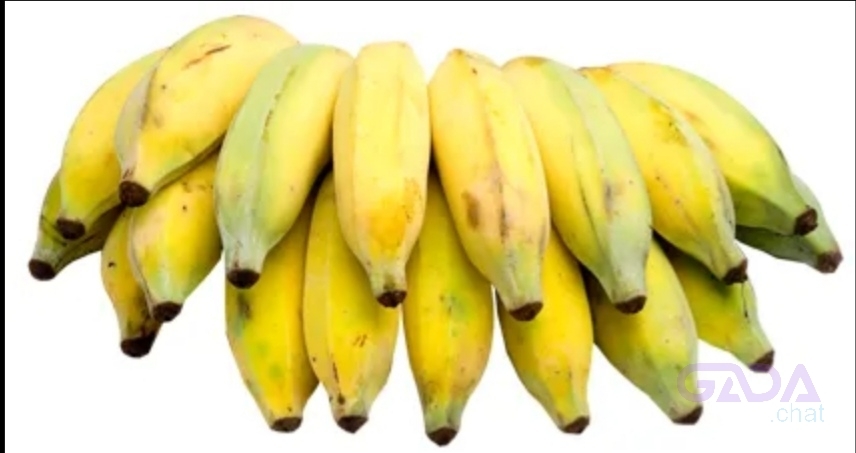THE SCIENCE OF SIGNS
Semiotics is the study of signs. A sign comprises two components: the signifier is the denotative level, and the signified is the connotation. A sign can be an icon, symbol or index. An icon is physically similar to the object or what it stands for; its literal sense refers to the signifier, e.g. a photo of a tree or the letters that spell tree, while its connotative sign pertains to its meaning. A symbol pattern refers to an interpretive habit or a norm of a learned behaviour like a play or pause button. In contrast, an index correlates with sensory information, e.g., fire smoke or car skidding noise. Language serves as a sign that we can read ‘Lamborghini’, and it can evoke similar images in our mind by spelling the word.’ We all recognize that it denotes a car. However, the sign consists of letters of the alphabet, and its connotative level conveys a deeper meaning, e.g., wealth and status, exclusivity and prestige. On the level of associated myths, which is a secondary sign, it is a myth of success and freedom. Its cultural sign is tied to broader ideologies of wealth, individuality, and power. It serves as both a functional object and a social statement.
An English rose is a flower; however, a red rose can symbolise love, romance, and beauty. It is used in romantic settings, while yellow roses may have a different meaning and could be more appropriate in a friendship context. A sign is always interpreted in context. For example, if Warren Buffet were speaking about money, his context would generate a completely different vibe than that of a corrupt prosperity preacher. They are using the same dollar note, yet the meanings generated reflect two different attitudes, even though the money possesses no inherent meaning—it's merely paper representing currency. Its connotative meaning is always interpreted differently, depending on who we are, as we see life through our worldview. Someone who believes in the stories of a prosperity preacher will form a different image in the meaning-making mind compared to one who sees through his antics. We create the meaning.
The ocean can be a place of rest where people enjoy a leisurely swim, while for others, it may provoke fear if they have recently encountered a shark. So, even though it’s the same location, the interpretations of reality or the signified meaning can have different connotations. Consider the word marriage; in most people's minds, it represents a union between a male and a female, but in other cultures, marriage may encompass multiple wives. According to the Bible, marriage is only between two people. Same-sex marriage has been normalised in many cultures, while gender-based violence can be accepted in some, leading to a belief that it is acceptable for women to be abused in a cultural context.
Nowadays, due to the globalised internet, we must ensure we share a common conceptual map of the world when discussing various concepts. This way, when we interpret signs that represent concepts, we need a thorough analysis of what we mean to minimise the chances of misinterpretation. We should never assume that everyone will derive the same conative meaning from a sign. We might discover that individuals have attached different connotations. We must not assume that someone from a completely different nation will share that same value just because something is socially acceptable or unacceptable to us.
We don't simply knock on a stranger’s door expecting a warm welcome; it requires a level of trust and background knowledge. For that access, the people we trust are vital; that’s why we have boundaries. Yet, because we all begin reasoning from different social locations, cultures, and economic, scientific, technological, religious, and philosophical backgrounds, we will not share the same premises from which we make our decisions. No one has the same experiences. The fact that you grew up on a different street with a unique life experience already illustrates the law of difference. Even if you lived next door and were raised by Indian parents in a foreign land, it means you will experience life differently and interpret signs in a distinct way. It cannot be compared to your neighbour’s experiences.
Although we may share a conceptual understanding of the economic and political system socialisation has imparted similar lessons due to our common culture. It functions like a membrane, working collectively within the groups from which we originate. However, just as there are molecular cells and membranes, they represent different components of the whole, yet they unite in agreement to operate as one cell. That is akin to culture. It emerges through the socialisation of various systems: family, shared economy, shared education, shared politics, create common values. Consequently, we are more likely to interpret signs in a similar way. For instance, if another culture were to perceive the connotative meaning of a national flag, it would lack relativity to them; instead, it simply symbolizes a nation through its colours and symbols that represent something significant.
Thus, we must consider this when using language. Although it may be understood in English, it doesn't necessarily mean that the connotative level of the sign holds the same significance. Since our minds work so quickly in processing information, we rarely pause to dissect it and reach a deeper understanding of different perspectives, as this is part of the logic of viewpoint we gain from various places. It's fascinating to analyse thought processes to truly grasp why someone’s perspective matters. All too often, we dismiss people because their standpoint differs so much, yet we should take the time to comprehend the logic behind their thinking, as it originates from where they have gathered their information.
Something profound I've observed is that when someone speaks with authority, even if their words are full of deception, others may not be thorough enough to grasp all the nuances in the speech act. They fail to detect falsehoods because the speaker sounds so convincing, especially if they are a respected authority figure. Thus, at the level of the sign, the denotative meaning is shared, but the connotative meaning is interpreted differently. That’s why we must consider who is interpreting the sign and what the context is to reach deeper understandings. It’s essential to question all thinking, including my own. It doesn’t matter who the person is; we are all prone to human error. The only one who is perfect is God. We can make mistakes without even realising it. If we look around at all the deception in this world, every person who is convinced of that deception as the truth is real in their mind. You can see this in people who live in superstition, such as walking under a ladder. This is the second level of myth, where a new connotative meaning tells another story. While we know, hypothetically, that it is not the truth, some will not agree because that is how they perceive the world when they see someone walk under a ladder and believe it.
Currently, I have been listening to a man who has tremendous insight, claiming up to 90% truth. Yet, he has categorised Christianity alongside other religions and views Jesus merely as a mystic. However, he has misunderstood the meanings he preaches and acts as if he knows the Bible. Yet, his interpretation is so erroneous it's not funny, and he has millions who follow him. It is because he has not encountered the kingdom. I could explain all his teachings if he had the right source of knowledge, which starts with God. But if the wrong connotative meaning is inferred, it leads down the wrong path. Therefore, the study of the science of signs is vital in these last days.
Written by Rochelle White
Semiotics is the study of signs. A sign comprises two components: the signifier is the denotative level, and the signified is the connotation. A sign can be an icon, symbol or index. An icon is physically similar to the object or what it stands for; its literal sense refers to the signifier, e.g. a photo of a tree or the letters that spell tree, while its connotative sign pertains to its meaning. A symbol pattern refers to an interpretive habit or a norm of a learned behaviour like a play or pause button. In contrast, an index correlates with sensory information, e.g., fire smoke or car skidding noise. Language serves as a sign that we can read ‘Lamborghini’, and it can evoke similar images in our mind by spelling the word.’ We all recognize that it denotes a car. However, the sign consists of letters of the alphabet, and its connotative level conveys a deeper meaning, e.g., wealth and status, exclusivity and prestige. On the level of associated myths, which is a secondary sign, it is a myth of success and freedom. Its cultural sign is tied to broader ideologies of wealth, individuality, and power. It serves as both a functional object and a social statement.
An English rose is a flower; however, a red rose can symbolise love, romance, and beauty. It is used in romantic settings, while yellow roses may have a different meaning and could be more appropriate in a friendship context. A sign is always interpreted in context. For example, if Warren Buffet were speaking about money, his context would generate a completely different vibe than that of a corrupt prosperity preacher. They are using the same dollar note, yet the meanings generated reflect two different attitudes, even though the money possesses no inherent meaning—it's merely paper representing currency. Its connotative meaning is always interpreted differently, depending on who we are, as we see life through our worldview. Someone who believes in the stories of a prosperity preacher will form a different image in the meaning-making mind compared to one who sees through his antics. We create the meaning.
The ocean can be a place of rest where people enjoy a leisurely swim, while for others, it may provoke fear if they have recently encountered a shark. So, even though it’s the same location, the interpretations of reality or the signified meaning can have different connotations. Consider the word marriage; in most people's minds, it represents a union between a male and a female, but in other cultures, marriage may encompass multiple wives. According to the Bible, marriage is only between two people. Same-sex marriage has been normalised in many cultures, while gender-based violence can be accepted in some, leading to a belief that it is acceptable for women to be abused in a cultural context.
Nowadays, due to the globalised internet, we must ensure we share a common conceptual map of the world when discussing various concepts. This way, when we interpret signs that represent concepts, we need a thorough analysis of what we mean to minimise the chances of misinterpretation. We should never assume that everyone will derive the same conative meaning from a sign. We might discover that individuals have attached different connotations. We must not assume that someone from a completely different nation will share that same value just because something is socially acceptable or unacceptable to us.
We don't simply knock on a stranger’s door expecting a warm welcome; it requires a level of trust and background knowledge. For that access, the people we trust are vital; that’s why we have boundaries. Yet, because we all begin reasoning from different social locations, cultures, and economic, scientific, technological, religious, and philosophical backgrounds, we will not share the same premises from which we make our decisions. No one has the same experiences. The fact that you grew up on a different street with a unique life experience already illustrates the law of difference. Even if you lived next door and were raised by Indian parents in a foreign land, it means you will experience life differently and interpret signs in a distinct way. It cannot be compared to your neighbour’s experiences.
Although we may share a conceptual understanding of the economic and political system socialisation has imparted similar lessons due to our common culture. It functions like a membrane, working collectively within the groups from which we originate. However, just as there are molecular cells and membranes, they represent different components of the whole, yet they unite in agreement to operate as one cell. That is akin to culture. It emerges through the socialisation of various systems: family, shared economy, shared education, shared politics, create common values. Consequently, we are more likely to interpret signs in a similar way. For instance, if another culture were to perceive the connotative meaning of a national flag, it would lack relativity to them; instead, it simply symbolizes a nation through its colours and symbols that represent something significant.
Thus, we must consider this when using language. Although it may be understood in English, it doesn't necessarily mean that the connotative level of the sign holds the same significance. Since our minds work so quickly in processing information, we rarely pause to dissect it and reach a deeper understanding of different perspectives, as this is part of the logic of viewpoint we gain from various places. It's fascinating to analyse thought processes to truly grasp why someone’s perspective matters. All too often, we dismiss people because their standpoint differs so much, yet we should take the time to comprehend the logic behind their thinking, as it originates from where they have gathered their information.
Something profound I've observed is that when someone speaks with authority, even if their words are full of deception, others may not be thorough enough to grasp all the nuances in the speech act. They fail to detect falsehoods because the speaker sounds so convincing, especially if they are a respected authority figure. Thus, at the level of the sign, the denotative meaning is shared, but the connotative meaning is interpreted differently. That’s why we must consider who is interpreting the sign and what the context is to reach deeper understandings. It’s essential to question all thinking, including my own. It doesn’t matter who the person is; we are all prone to human error. The only one who is perfect is God. We can make mistakes without even realising it. If we look around at all the deception in this world, every person who is convinced of that deception as the truth is real in their mind. You can see this in people who live in superstition, such as walking under a ladder. This is the second level of myth, where a new connotative meaning tells another story. While we know, hypothetically, that it is not the truth, some will not agree because that is how they perceive the world when they see someone walk under a ladder and believe it.
Currently, I have been listening to a man who has tremendous insight, claiming up to 90% truth. Yet, he has categorised Christianity alongside other religions and views Jesus merely as a mystic. However, he has misunderstood the meanings he preaches and acts as if he knows the Bible. Yet, his interpretation is so erroneous it's not funny, and he has millions who follow him. It is because he has not encountered the kingdom. I could explain all his teachings if he had the right source of knowledge, which starts with God. But if the wrong connotative meaning is inferred, it leads down the wrong path. Therefore, the study of the science of signs is vital in these last days.
Written by Rochelle White
THE SCIENCE OF SIGNS
Semiotics is the study of signs. A sign comprises two components: the signifier is the denotative level, and the signified is the connotation. A sign can be an icon, symbol or index. An icon is physically similar to the object or what it stands for; its literal sense refers to the signifier, e.g. a photo of a tree or the letters that spell tree, while its connotative sign pertains to its meaning. A symbol pattern refers to an interpretive habit or a norm of a learned behaviour like a play or pause button. In contrast, an index correlates with sensory information, e.g., fire smoke or car skidding noise. Language serves as a sign that we can read ‘Lamborghini’, and it can evoke similar images in our mind by spelling the word.’ We all recognize that it denotes a car. However, the sign consists of letters of the alphabet, and its connotative level conveys a deeper meaning, e.g., wealth and status, exclusivity and prestige. On the level of associated myths, which is a secondary sign, it is a myth of success and freedom. Its cultural sign is tied to broader ideologies of wealth, individuality, and power. It serves as both a functional object and a social statement.
An English rose is a flower; however, a red rose can symbolise love, romance, and beauty. It is used in romantic settings, while yellow roses may have a different meaning and could be more appropriate in a friendship context. A sign is always interpreted in context. For example, if Warren Buffet were speaking about money, his context would generate a completely different vibe than that of a corrupt prosperity preacher. They are using the same dollar note, yet the meanings generated reflect two different attitudes, even though the money possesses no inherent meaning—it's merely paper representing currency. Its connotative meaning is always interpreted differently, depending on who we are, as we see life through our worldview. Someone who believes in the stories of a prosperity preacher will form a different image in the meaning-making mind compared to one who sees through his antics. We create the meaning.
The ocean can be a place of rest where people enjoy a leisurely swim, while for others, it may provoke fear if they have recently encountered a shark. So, even though it’s the same location, the interpretations of reality or the signified meaning can have different connotations. Consider the word marriage; in most people's minds, it represents a union between a male and a female, but in other cultures, marriage may encompass multiple wives. According to the Bible, marriage is only between two people. Same-sex marriage has been normalised in many cultures, while gender-based violence can be accepted in some, leading to a belief that it is acceptable for women to be abused in a cultural context.
Nowadays, due to the globalised internet, we must ensure we share a common conceptual map of the world when discussing various concepts. This way, when we interpret signs that represent concepts, we need a thorough analysis of what we mean to minimise the chances of misinterpretation. We should never assume that everyone will derive the same conative meaning from a sign. We might discover that individuals have attached different connotations. We must not assume that someone from a completely different nation will share that same value just because something is socially acceptable or unacceptable to us.
We don't simply knock on a stranger’s door expecting a warm welcome; it requires a level of trust and background knowledge. For that access, the people we trust are vital; that’s why we have boundaries. Yet, because we all begin reasoning from different social locations, cultures, and economic, scientific, technological, religious, and philosophical backgrounds, we will not share the same premises from which we make our decisions. No one has the same experiences. The fact that you grew up on a different street with a unique life experience already illustrates the law of difference. Even if you lived next door and were raised by Indian parents in a foreign land, it means you will experience life differently and interpret signs in a distinct way. It cannot be compared to your neighbour’s experiences.
Although we may share a conceptual understanding of the economic and political system socialisation has imparted similar lessons due to our common culture. It functions like a membrane, working collectively within the groups from which we originate. However, just as there are molecular cells and membranes, they represent different components of the whole, yet they unite in agreement to operate as one cell. That is akin to culture. It emerges through the socialisation of various systems: family, shared economy, shared education, shared politics, create common values. Consequently, we are more likely to interpret signs in a similar way. For instance, if another culture were to perceive the connotative meaning of a national flag, it would lack relativity to them; instead, it simply symbolizes a nation through its colours and symbols that represent something significant.
Thus, we must consider this when using language. Although it may be understood in English, it doesn't necessarily mean that the connotative level of the sign holds the same significance. Since our minds work so quickly in processing information, we rarely pause to dissect it and reach a deeper understanding of different perspectives, as this is part of the logic of viewpoint we gain from various places. It's fascinating to analyse thought processes to truly grasp why someone’s perspective matters. All too often, we dismiss people because their standpoint differs so much, yet we should take the time to comprehend the logic behind their thinking, as it originates from where they have gathered their information.
Something profound I've observed is that when someone speaks with authority, even if their words are full of deception, others may not be thorough enough to grasp all the nuances in the speech act. They fail to detect falsehoods because the speaker sounds so convincing, especially if they are a respected authority figure. Thus, at the level of the sign, the denotative meaning is shared, but the connotative meaning is interpreted differently. That’s why we must consider who is interpreting the sign and what the context is to reach deeper understandings. It’s essential to question all thinking, including my own. It doesn’t matter who the person is; we are all prone to human error. The only one who is perfect is God. We can make mistakes without even realising it. If we look around at all the deception in this world, every person who is convinced of that deception as the truth is real in their mind. You can see this in people who live in superstition, such as walking under a ladder. This is the second level of myth, where a new connotative meaning tells another story. While we know, hypothetically, that it is not the truth, some will not agree because that is how they perceive the world when they see someone walk under a ladder and believe it.
Currently, I have been listening to a man who has tremendous insight, claiming up to 90% truth. Yet, he has categorised Christianity alongside other religions and views Jesus merely as a mystic. However, he has misunderstood the meanings he preaches and acts as if he knows the Bible. Yet, his interpretation is so erroneous it's not funny, and he has millions who follow him. It is because he has not encountered the kingdom. I could explain all his teachings if he had the right source of knowledge, which starts with God. But if the wrong connotative meaning is inferred, it leads down the wrong path. Therefore, the study of the science of signs is vital in these last days.
Written by Rochelle White
0 Commentaires
0 Parts
30 Vue
0 Aperçu












